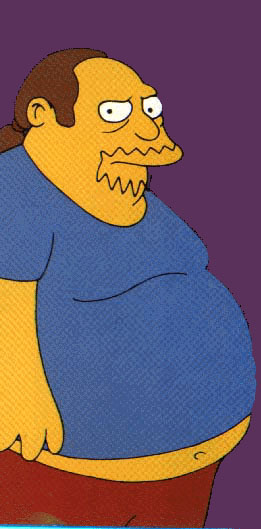Comics /
Cult Favorite
Comic Shops: the Good, the Bad, and the Ugly
By Philip Schweier
December 4, 2006 - 10:50
I’ve had the privilege of doing quite a bit of traveling the past year or so, and one of the benefits has been the opportunity to visit a number of different comic shops. In what was probably the smallest one, located in Indianapolis, my brother-in-law, a non-fan, asked me, “Is this a good store?
My response was that it all depended on what one looks for. I prefer a healthy selection of back issues, my wife looks for gaming supplies, and we both appreciate a wide variety of stuff. Another store in the Indianapolis area, while larger in square footage, was pretty limited to new and recent comics, and a gaming area that, at the time of our visit (lunchtime on a weekday), was inactive.
One store that seemed to cover all the bases was Emerald City Comics in Seminole, Florida. Other stores in the Tampa area were good outlets for someone needing their weekly comic book fix, but Emerald City has the variety. They have the staff. They have the stock. It’s the selective comic book/science fiction/fantasy/gaming fan who can’t go in there and find more stuff than they can comfortably afford.
Unfortunately, a shop like Emerald City is the exception rather than the rule. One of the best I’ve ever known was Comics Castle in Macon, GA. Long gone now, it was operated by Roland Castle, who loved kids. He would do anything for the youth of his community. He’d tried being a teacher, but apparently couldn’t stomach the bureaucratic nonsense that came with it. So, as a comic book fan, and with the boom in comic shops in the early ‘80s, he opened his own store. He built it into a very family friendly environment. He had a big screen TV set up, showing classic science fiction and fantasy movies and Japanese animation. He also hosted regular gaming nights. He regarded it as an investment in the kids of his community to offer them a place to go where they wouldn’t be exposed to drugs or get into trouble. He was even able to bring a few conventions to the area.
Unfortunately, not all comic dealers are so pleasant to do business with. Many are thinking only of the money, unwilling to make even the slightest concession to their customers. It doesn’t take an MBA to figure out there is a lot to be gained from the simple investment in customer relations.
In any business, sacrificing a few dollars in order to keep a customer coming back is a worthy effort. Sure, it might take a while, but eventually, it pays off, if only to keep that customer from running their mouth to their friends about what a miserable experience they had at your shop, and thereby losing more potential business.
One comic book dealer I remember came up with some oddball formula whereby if he didn’t sell an average of three titles per customer, he couldn’t turn a profit. He overlooked the number of people buying five titles to make up for the person buying one, and he ignored the back issue sales entirely. He started telling customers that unless we were prepared to meet his quota, we may as well take our business elsewhere. So we did.
Another store I visited had an interesting pricing method. The stock was divided into three sections: $1, $5, and Ask at the Counter. Some of the stuff in the $1 section might be worth more, so you’re getting a bargain. Some of the $5 comics aren’t worth quite that much, so maybe it’s not much of a deal. But that’s a chance both the customer and dealer are taking. As for the Ask at the Counter stock, considering that the bulk of it was from the early 1970s at the latest, I’ll concede the dealer should have it individually priced.
Some retailers price their comics according to
Wizard, or
the Overstreet Price Guide. I disapprove of this, but with a back issue stock numbering in the hundreds of thousands, I don’t know of an alternative to recommend. I certainly don’t expect a dealer to mark their stock, only to re-mark it again six months later.
I’ve had some dealers tell me, “That’s what it’s worth,” when I question the price of a 15-year old issue of
Captain America. No, that’s what it’s worth to the retailer to part with it. Good luck finding someone who wants it. It’s not worth $12.50 to me because I don’t want to pay more than $8, regardless of who drew it or what condition it’s in.
Retail is based on the theory of exchanging money for goods or services, a fair value at a fair price. Nobody on either side of the cash register wants to be taken advantage of, and any business that regards its customers as dollar signs must expect reciprocal treatment. Sometimes that’s the nature of business.
As consumers, we can speak best through our wallets. Doing so enables us to influence the market until it balances in such a way that both customer and retailer can strike a bargain.
Last Updated: March 3, 2025 - 20:40
